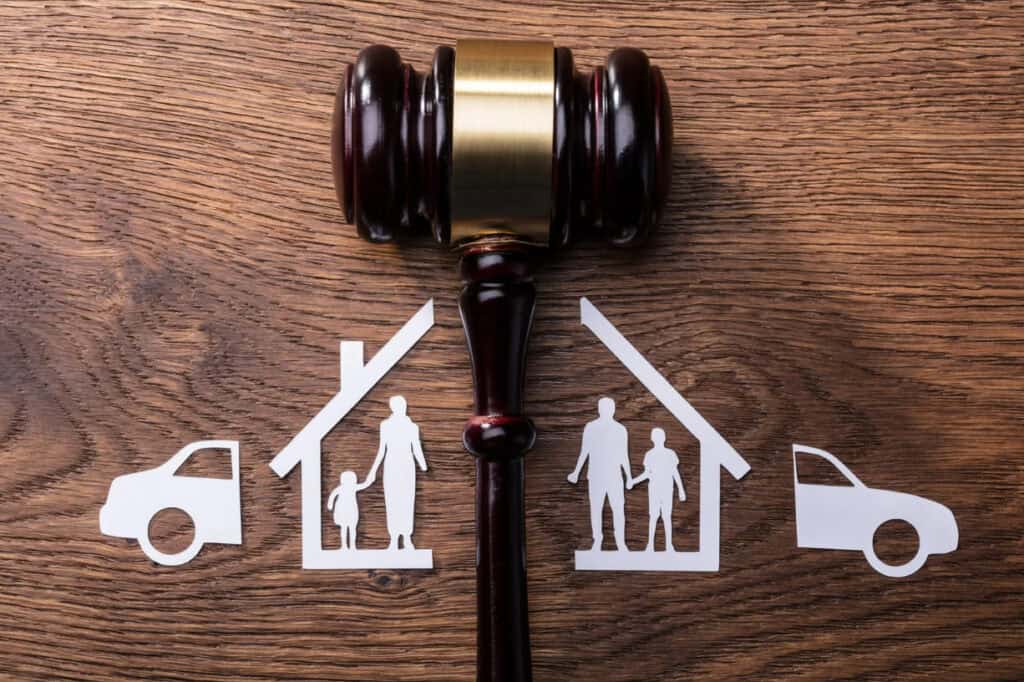Marriage is a beautiful journey. However, sometimes couples face problems that lead them to think about separation. When this happens, understanding the available options is necessary.
Table of Contents
Divorce and legal separation are two paths that couples might take. Both have different implications and processes. Knowing the difference will help you make the right decision for your situation.
For couples facing marital difficulties, understanding the difference between a divorce and a legal separation is crucial. This blog will explore the differences between these two options, helping you navigate this challenging time with more clarity.

What is Divorce?
Divorce is a legal way of dissolving a marriage. When a divorce case is finalized, it simply means that the marriage has come to an official end. If they wish, they can remarry again. The divorce procedure goes through the following steps:
- Filing of a petition with the court
- Division of the assets and debts
- Distribution of child custody and support
- Spousal support issues would have to be settled
After divorce, they are not legally bound to each other. They are considered single individuals by the law and can make major decisions in their lives individually.

What is a Legal Separation?
Legal separation is the process through which a married couple lives apart and remains married to each other. During legal separation:
- The couple lives separately
- They may separate assets and debt
- Child custody and support may be settled
- Spousal support may be awarded
On the other hand, legal separation does not dissolve the marriage, unlike divorce. You are still married but live separate lives.
The Difference Between Divorce and Legal Separation
Marital Status: The most important difference between divorce and separation is that in divorce, the marriage ends. In legal separation, you are still considered married in terms of the law.
Remarriage: You can legally remarry after divorce. A legal separation doesn’t allow you to remarry without first being divorced.
Financial Ties: Most of the financial ties, which are severed through a divorce, continue under a legal separation. For instance, you may still be in a position to benefit from your spouse’s health insurance or social security.
Property Rights: Some states still consider property acquired after a legal separation as marital property. However, whatever is purchased after divorce is normally separate.
Liability for Debts: You can be liable for debts your spouse incurs in a legal separation. Once you are divorced, though, you’re usually responsible only for your own debts.
Reconciliation: In most cases, reconciliation is easier after a legal separation than a divorce, as the marriage has not been officially dissolved.
Why Choose Legal Separation?
There are several reasons that a couple may choose legal separation over divorce:
- Religious beliefs that do not allow for divorce
- The belief that there is a chance for reconciliation in the future
- To be able to retain some of the benefits, like health insurance
- It takes time to decide if divorce is the right way to go
- Tax benefits in some cases
- Keeping the family together for the children
Why Choose Divorce?
On the contrary, couples may choose divorce over legal separation because of the following:
- Need for a clean break and start afresh
- Prospect of remarriage
- Intent to break off all legal and financial relations
- Closure of emotional attachment
- Clarity in legal status

Knowing the Difference Between Divorce and Legal Separation
Knowing the difference between divorce and legal separation is important when a person contemplates what the future holds for their marriage. Both cases involve separate living arrangements and legal provisions for money and children.
They do differ a lot in meaning as far as your marital status and what the future may hold are concerned. Remember, there is no one-size-fits-all solution. What works for one couple may not be the best choice for another.
Take a little time to carefully consider your options; if necessary, consult with professionals regarding this decision that would most suit your own circumstances, values, and long-term goals. You may have personal growth and a new life ahead, whichever way you decide to go.



